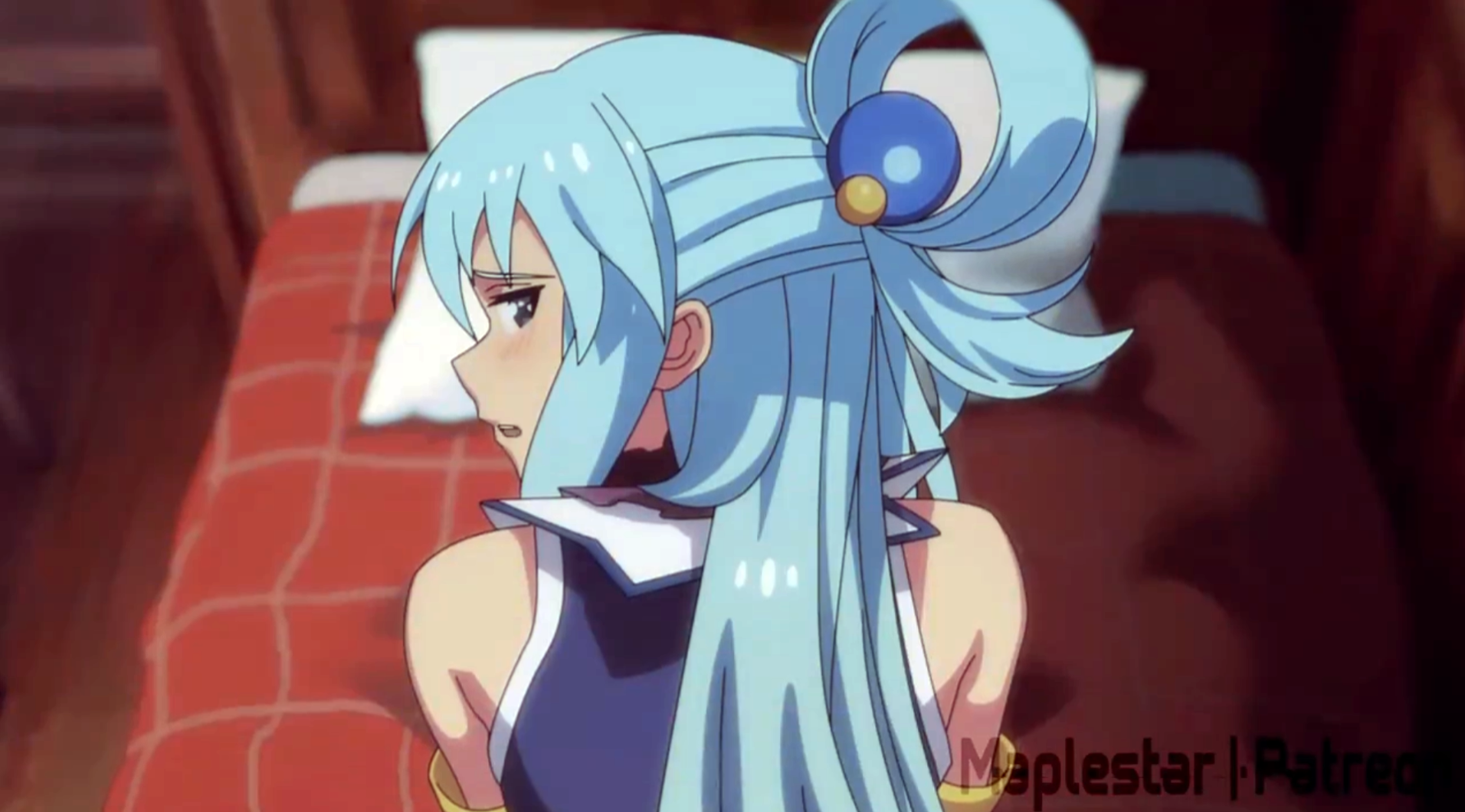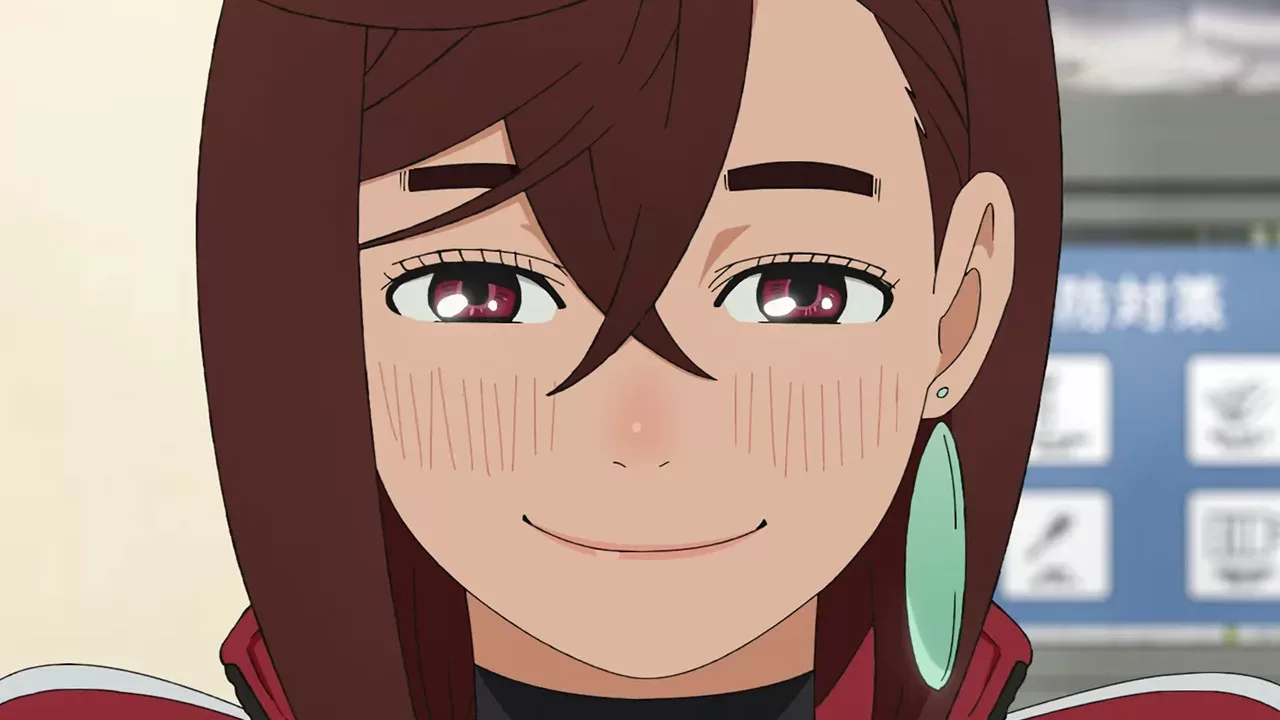Maplestar's Frieren Animation: Controversy & Fan Reactions!
Is the line between fan art and official content blurring beyond recognition? The emergence of creators like Maplestar, who navigate the complex landscape of online animation with a blend of parody, adult themes, and genuine artistic skill, demands that we reconsider the very definition of "canon" in the age of digital media.
The world of anime and manga is no stranger to fan-made content, but Maplestar has carved a unique niche. Operating in the space between homage and parody, their animations have garnered a dedicated following and sparked considerable debate within the otaku community. This discussion intensified recently when renowned animator Yuuta Suzuhana (@yuuta16597), known for his work on episodes 14 and 17 of the officially acclaimed anime series "Sousou no Frieren" (Frieren: Beyond Journey’s End), revealed his participation in a Maplestar project featuring the same characters, Fern and Stark. This unexpected collaboration sent ripples throughout the fan base, raising questions about the boundaries of creative expression and the influence of fan culture on mainstream animation.
| Yuuta Suzuhana Biography | |
|---|---|
| Personal Information | Details |
| Full Name | Yuuta Suzuhana |
| Twitter Handle | @yuuta16597 |
| Career Information | Details |
| Profession | Animator |
| Notable Work | Animator on Episodes 14 and 17 of "Sousou no Frieren" anime |
| Collaboration | Participated in a Maplestar animation project featuring Fern and Stark from "Sousou no Frieren" |
| Other Projects | Involvement in H animation featuring Fern and Stark |
| Professional Information | Details |
| Industry Recognition | Renowned animator in the anime fan community |
| Public Reaction | His involvement in Maplestar's project sparked significant discussion and debate among fans |
| Specialization | Known for his work on popular anime series and his willingness to explore fan-driven content |
| Reference | Yuuta Suzuhana's Twitter Profile |
The core of the controversy lies in the nature of Maplestar's work: adult-themed parodies of popular anime series. The announcement that Suzuhana, an animator with credits on the official "Sousou no Frieren" production, had contributed to a Maplestar animation featuring explicit content starring Fern and Stark sparked a fierce debate. Some fans were intrigued by the potential for a "canonical" interpretation, suggesting that Suzuhana's involvement might lend a degree of authenticity to the parody's style and character portrayal. Others expressed discomfort or disapproval, arguing that the adult themes clashed with the spirit of the original series.
This is not the first time Maplestar's work has ignited discussion within the otaku community. Their animations, often featuring characters from well-known franchises like "High School DxD" and "Jujutsu Kaisen," are known for their distinctive blend of humor, fan service, and explicit content. For instance, the release of a Maplestar animation featuring Rias Gremory and Issei Hyodo from "High School DxD" generated considerable buzz. Similarly, a recent animation featuring Yuji and Nobara from "Jujutsu Kaisen" garnered positive reactions from fans, who appreciated the artist's unique take on their dynamic relationship. Maplestar’s output isn't just confined to single animations. The Revolution AMV's showcase the creator’s ability to edit videos using various scenes from different animation, constructing something entirely new and visually engaging. These AMVs further highlight the creative potential and skill inherent in Maplestar’s artistic endeavors.
The appeal of Maplestar's animations stems from several factors. First, their work taps into the existing popularity of established anime series, offering fans a familiar yet subversive take on beloved characters and storylines. Second, Maplestar's animations are technically proficient, showcasing a mastery of animation techniques and a distinct visual style. Finally, the adult themes provide an element of novelty and transgression, appealing to a segment of the audience seeking content that pushes the boundaries of mainstream animation. These themes are handled within a context that understands its audience and their expectations, creating a niche that is both entertaining and engaging.
However, this blend of elements also makes Maplestar's work controversial. Some critics argue that the adult themes are exploitative or disrespectful to the original source material. Concerns have also been raised about the potential impact of such content on younger viewers, despite the platforms on which Maplestar operates generally having age restrictions and content warnings. The broader debate touches upon the ethical considerations surrounding fan-made content and the responsibility of artists who create adult-themed parodies of popular franchises.
The involvement of Yuuta Suzuhana in a Maplestar project further complicates the issue. As an animator with official credits on "Sousou no Frieren," Suzuhana's participation lends a degree of legitimacy to the parody that might not otherwise exist. This raises questions about the potential for professional animators to engage in fan-made content without compromising the integrity of their official work. Moreover, it highlights the evolving relationship between professional animation studios and the fan community, suggesting a potential for collaboration and cross-pollination of ideas.
"It is the first time I have shared something like this," Suzuhana stated, acknowledging the unusual nature of his collaboration with Maplestar. His statement provides insight into the evolving norms within the anime industry and the growing acceptance of fan-driven creativity. The buzz surrounding Suzuhana’s statement reverberated online, amplifying the attention Maplestar’s project received and drawing in an even wider audience eager to witness the outcome of this unique partnership.
The discussion surrounding Maplestar and Yuuta Suzuhana also shines a light on the challenges and opportunities facing online animators. Creators like Maplestar operate in a rapidly evolving digital landscape, where they can connect directly with audiences through platforms like Twitter and Patreon. Maplestar’s initial success on these platforms paved the way for a sustainable career, demonstrating the power of direct audience engagement. For instance, Maplestar first uploaded artwork to Twitter and Patreon on August 29th, 2019, featuring an animation loop of older Raphtalia from "Rising of the Shield Hero," which quickly garnered over 1 million views and 22,000 likes within three years. This early success helped solidify Maplestar's presence in the online animation sphere.
Patreon, in particular, has become a crucial platform for independent animators, enabling them to secure funding and build a community around their work. "Patreon is empowering a new generation of creators," a statement from the platform highlights, emphasizing the importance of support and engagement between artists and their patrons. This direct financial support allows creators like Maplestar the freedom to pursue their artistic vision without the constraints of traditional media outlets. The shift towards platforms like Patreon has revolutionized the way animators fund their projects, granting them autonomy and fostering a closer relationship with their fans.
However, operating in the online realm also presents challenges. Animators must navigate complex copyright laws, content restrictions, and the ever-present threat of piracy. Maintaining a consistent output while dealing with these challenges requires dedication, creativity, and a deep understanding of the digital landscape. For Maplestar, this means carefully managing content to avoid copyright infringements, engaging with the audience to foster loyalty, and consistently innovating to stay ahead of the curve. The ability to adapt and evolve is essential for survival in the dynamic world of online animation.
Furthermore, the anonymity afforded by the internet can also lead to negativity and harassment. Online animators must develop strategies for dealing with criticism and trolls while maintaining a positive online presence. This often involves setting boundaries, moderating comments, and focusing on constructive feedback. The ability to cultivate a supportive community is essential for weathering the storms of online negativity and maintaining a healthy creative environment. Maplestar’s success also lies in building a strong community around their work, fostering a sense of belonging and mutual appreciation.
The rise of Maplestar and the controversy surrounding their collaboration with Yuuta Suzuhana reflect a larger trend in the anime and manga industry: the increasing blurring of lines between official and fan-made content. In an era where fans can create and share their own interpretations of beloved series, the traditional power structures of the industry are being challenged. The traditional gatekeepers are losing their grip as independent creators gain the ability to reach global audiences without needing to go through conventional media channels.
This trend has significant implications for the future of anime and manga. As fans become more active participants in the creative process, the industry must adapt to accommodate their contributions. This could involve collaborations between professional studios and fan creators, the incorporation of fan-made content into official series, or the development of new platforms for showcasing fan creativity. The future of anime and manga lies in embracing the power of the fan community and fostering a more collaborative and inclusive creative environment. This shift also fosters a more intimate connection between creators and fans, leading to a more engaged and interactive community.
The layered meaning behind Maplestar's work extends beyond mere parody. It represents an idea, a community, and a sense of belonging. By delving deeper into Maplestar, one discovers its historical relevance and broader cultural context. It’s more than just a name; it embodies the changing dynamics of content creation and consumption in the digital age. The success of Maplestar demonstrates the power of independent creators to connect with audiences on a global scale, and the ongoing discussions surrounding their work underscore the complex ethical and artistic considerations that arise in this new creative landscape. This highlights the importance of understanding the deeper cultural context and historical relevance of online content creation.
In the Spanish-speaking otaku community, the work of Maplestar also generates debate. The news that the popular series "Sousou no Frieren" has returned to the spotlight, not for its anticipated second season, but for the publication of an H-rated parody featuring Fern and Stark, also resonated. This unusual collaboration between the independent animator Maplestar and the popular series "Sousou no Frieren" was revealed, with the renowned Japanese artist Yuuta Suzuhana commenting on Twitter X that he participated in the latest parody video starring Fern and Stark. This event triggered significant discussion and demonstrates the global impact of Maplestar’s work and its ability to generate conversation across different cultural contexts.
Even in other languages, the story remains consistent. Animator Yuuta Suzuhana made headlines when he revealed his participation in Maplestar with the characters Fern and Stark from Sousou no Frieren. The project was led by Maplestar, who is renowned for their specialization in this type of animation. Similarly, in Portuguese-speaking communities, Maplestar recently announced a new animation in development with characters from "Sousou no Frieren" (Frieren: Beyond Journey’s End). Although a specific date has not been revealed, fan anticipation is high, especially after the preview that shows the character Fern in suggestive scenes. These announcements highlight the widespread appeal and international reach of both "Sousou no Frieren" and Maplestar’s animations, demonstrating the global nature of fan engagement.
Ultimately, the story of Maplestar and Yuuta Suzuhana is a testament to the evolving landscape of online animation and the power of fan-driven creativity. It raises important questions about the boundaries of artistic expression, the ethics of adult-themed parodies, and the relationship between professional animators and the fan community. As the lines between official and fan-made content continue to blur, the industry must adapt to embrace the creativity and passion of its audience. The future of animation may well be shaped by the independent creators and collaborative projects that are emerging from the digital realm. The willingness to engage with these emerging trends will be essential for the continued growth and evolution of the anime and manga industry.

Maplestar Anuncia novo projeto de "Sousou no Frieren" DefeatZone

The Ultimate Guide To Maplestar Free Unlocking Its Full Potential

Maplestar Anuncia novo projeto de "Sousou no Frieren" DefeatZone